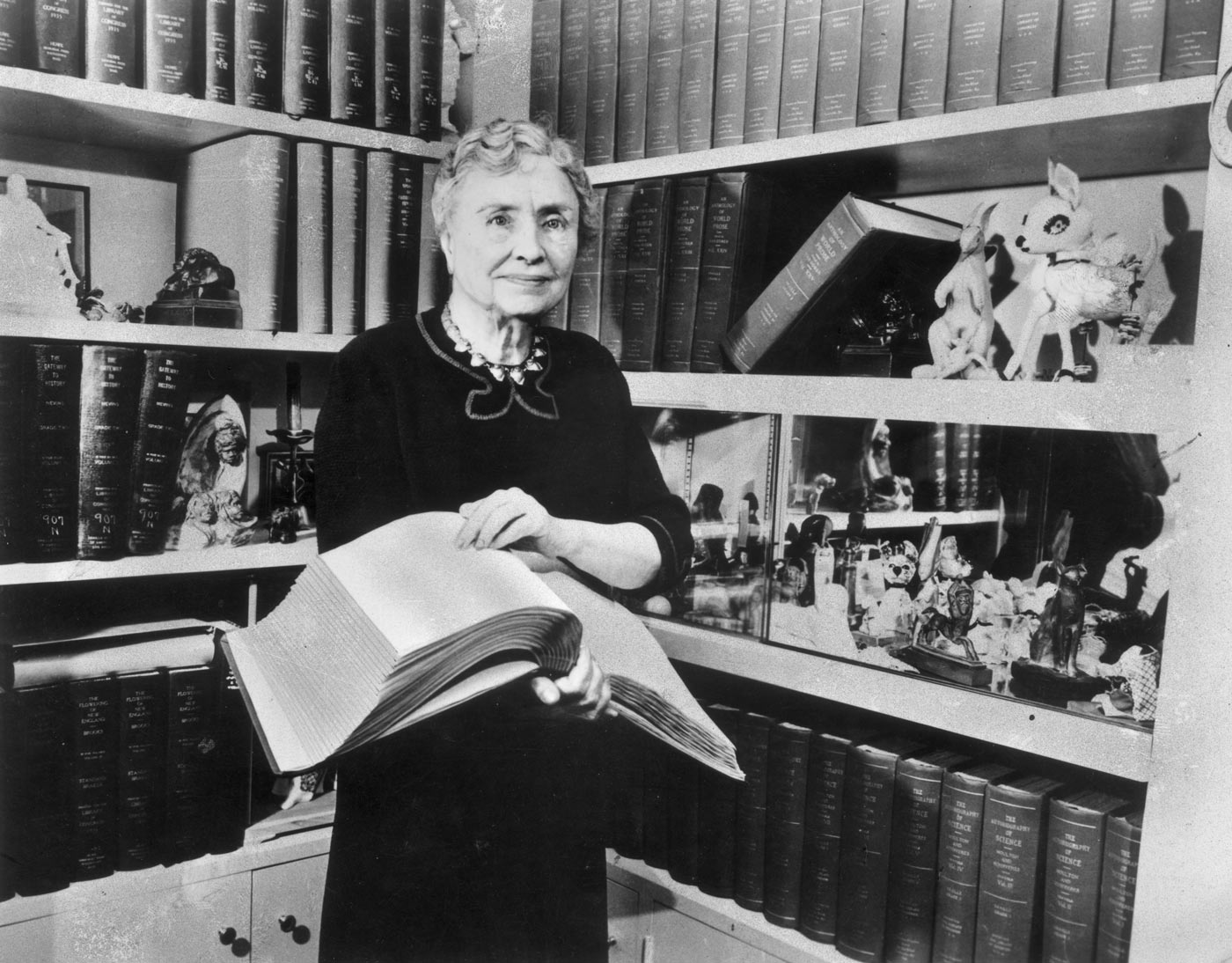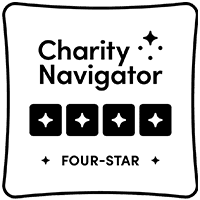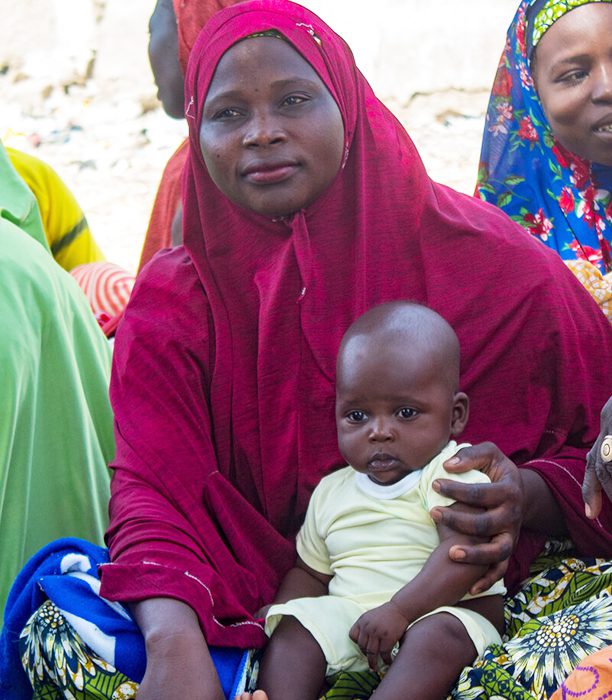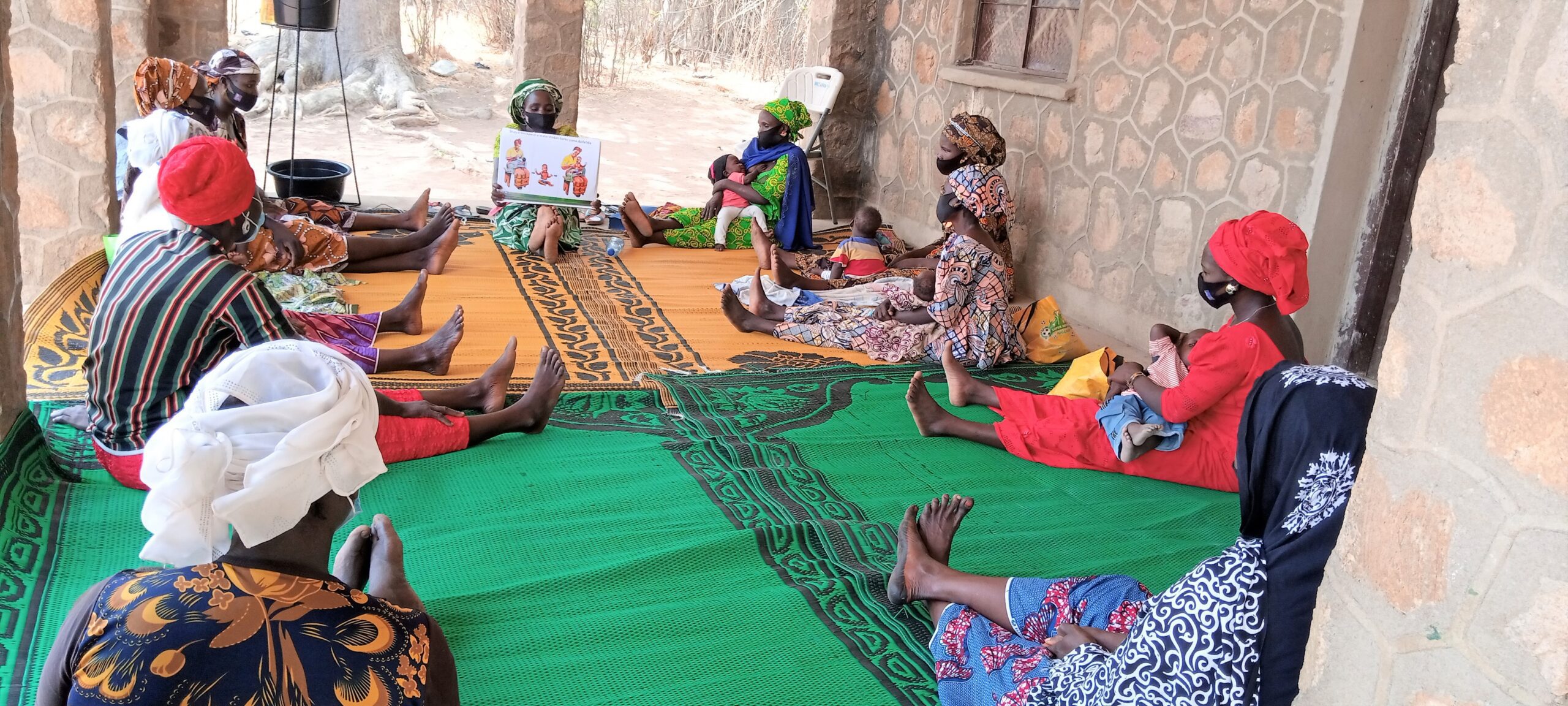
Growing nutritious food – and community – in northern Nigeria
In northern Nigerian communities, Helen Keller’s agricultural training programs have a dual outcome: They increase awareness of critical nutrition practices, and they also empower girls and women – who represent a majority of program participants.
Home gardens provide nutritious crops for women to eat and to sell
This year, Helen Keller Intl set our sights on a formidable goal: to increase year-round access to nutritious foods in households with teenage girls, pregnant or lactating women, and children under five. We trained 144 mothers on home gardening and agricultural best practices. We focused on growing locally available vegetables that are high in vitamin A, like maize, spinach, ugu (pumpkin leaves), orange flesh sweet potato and yellow enriched cassava. These vegetables support clear vision and build strong immune systems. After successful completion of the training, participants were given tools and seeds to help establish their own home gardens.
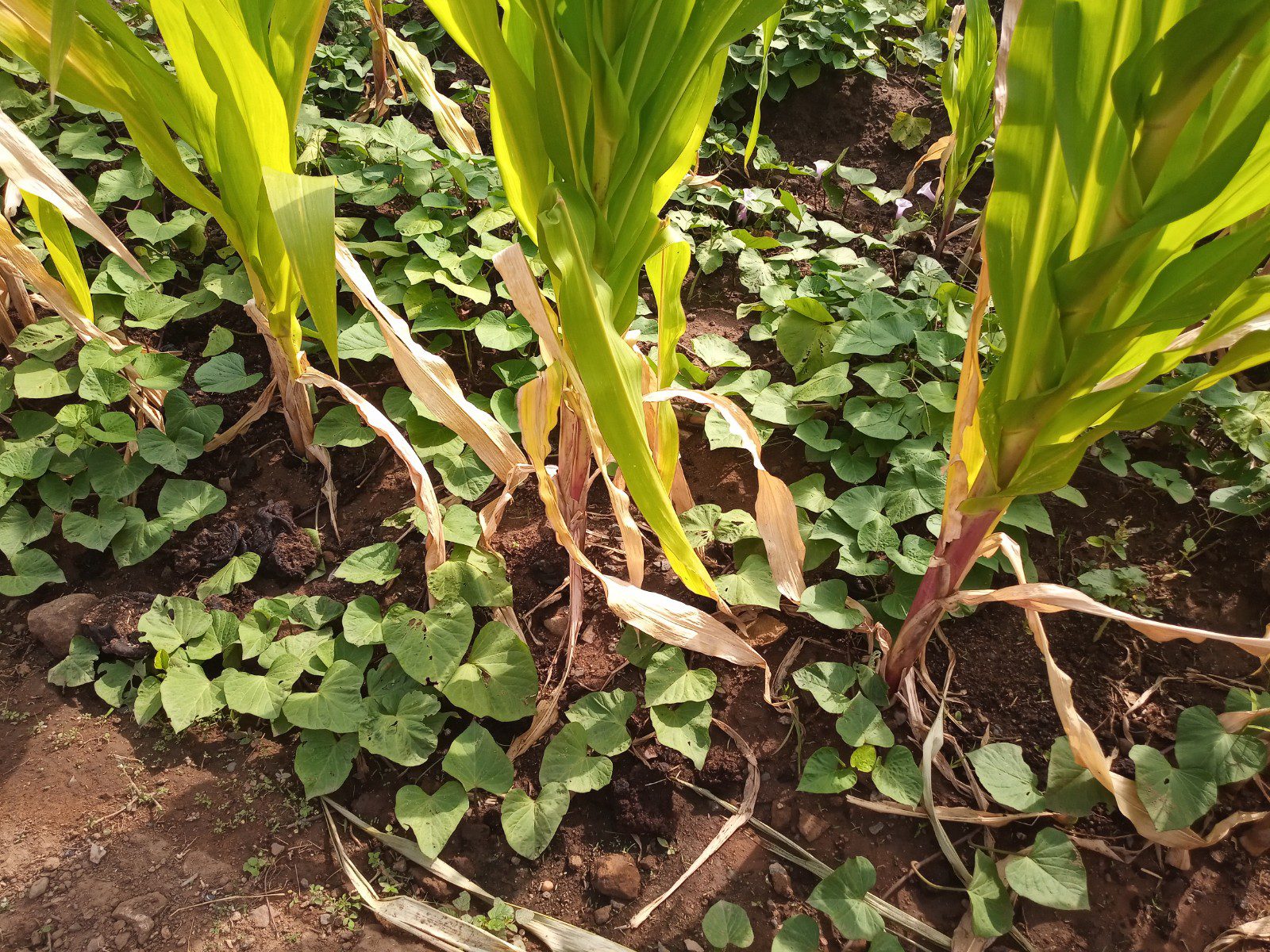
Among the participants was Monica, an internally displaced person from Gwoza in Borno state and a mother of three children. She is a model mom who lives in Mararaban Cigari Community of Fufore. Monica’s garden provided healthy food for her family and extra crops that she was able to sell from her home. Using the profits she made, Monica was able to purchase additional nutritious foods for her family, such as milk, fish and eggs, as well as other household items like soap and detergent.
I am very happy that I was trained by Helen Keller Intl on home garden techniques. It has helped me to establish my own garden, which has also become my source of income.”
Monica Daniel
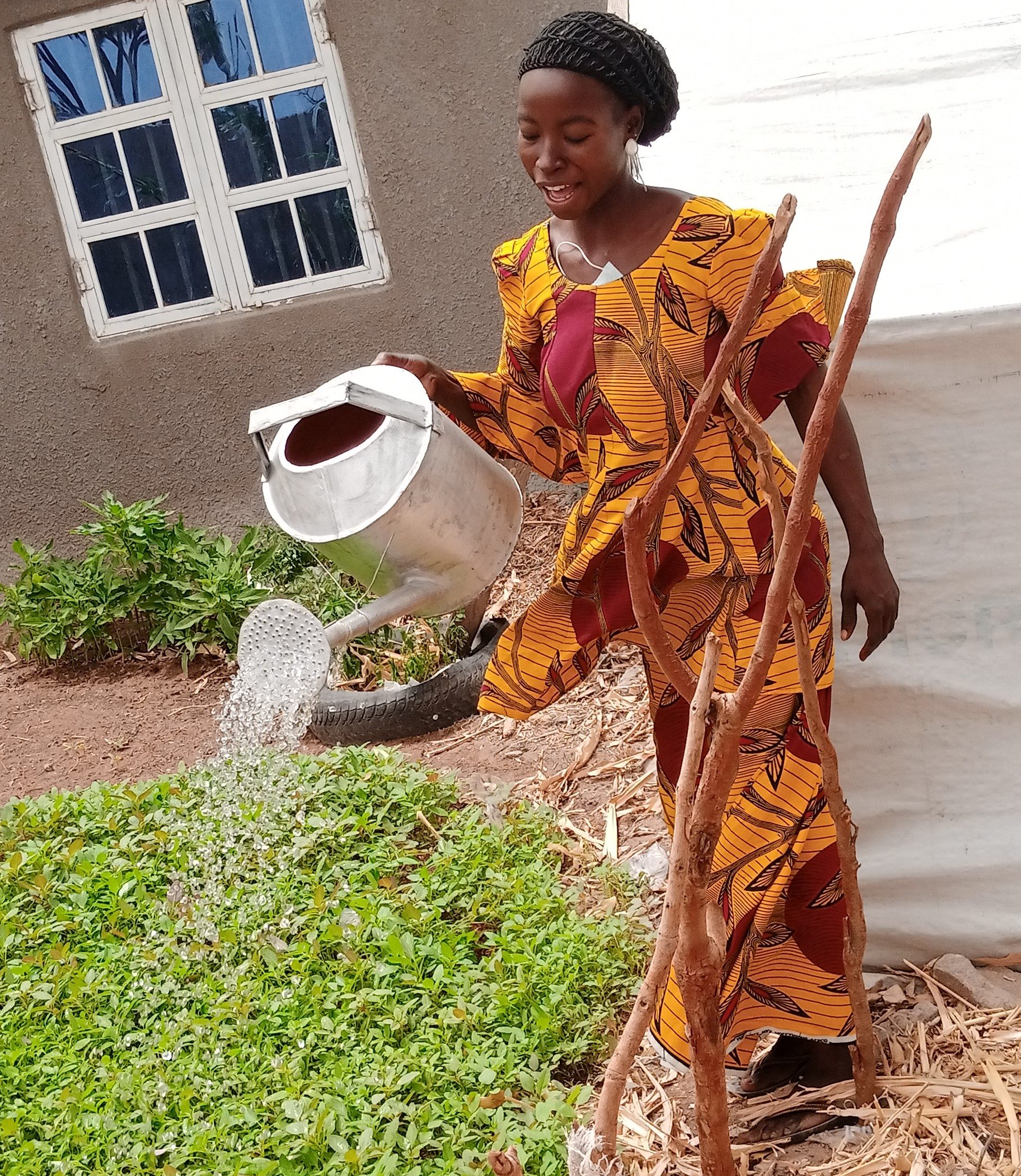
The revenue afforded to women through gardening allows them to provide for their families and contribute to a vital part of their local economies. With new knowledge and resources, those trained by Helen Keller are poised to enrich, sustain and shape their families and communities for the better.
Women become nutrition change agents for their communities
In addition to learning the skills to farm and monetize their crops, participants in the program also learn about nutrition and the importance of breastfeeding for infant health. They are then empowered to share this knowledge with others in the community, catalyzing change for more women and their families.
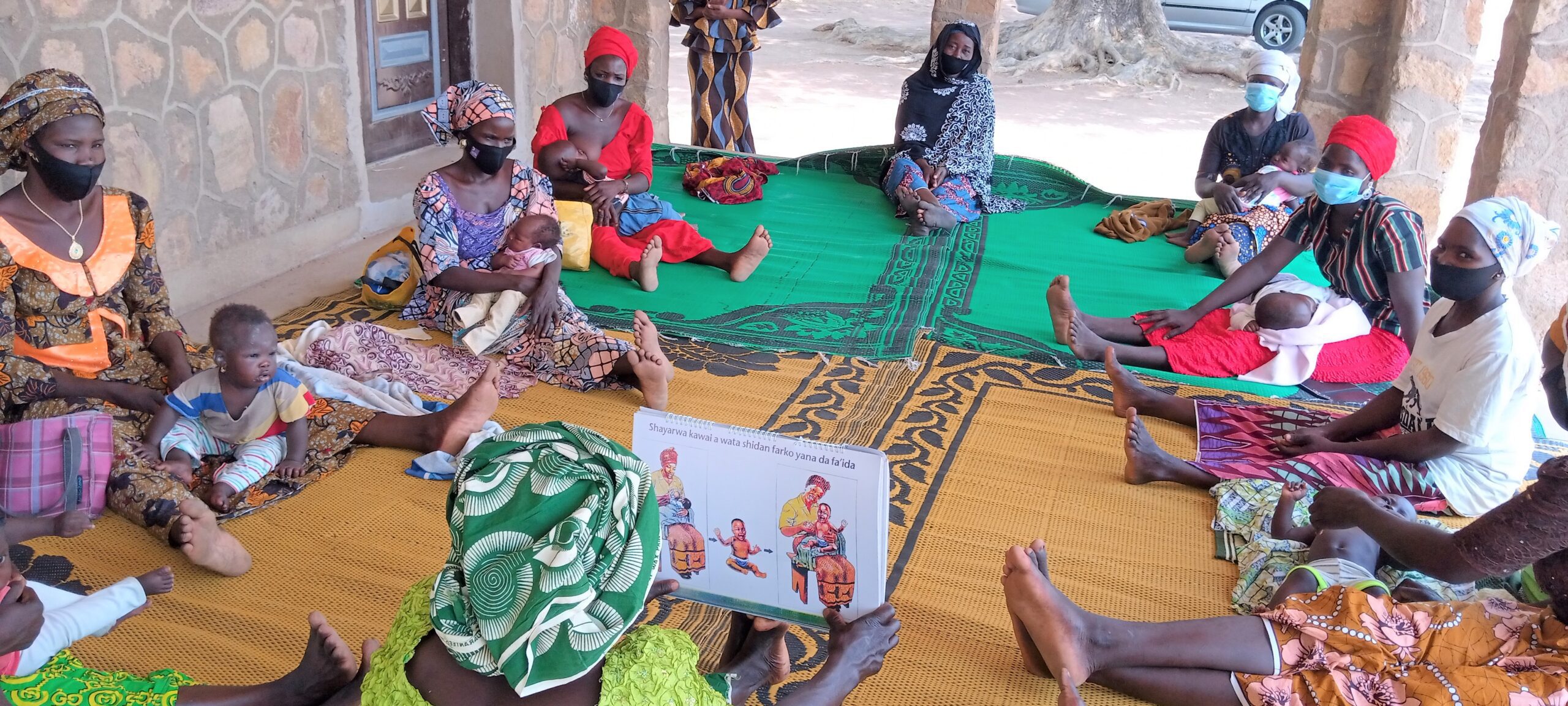
“I am very happy with the work that Helen Keller Intl is doing in my community, because my knowledge has increased on infant and young child feeding and I was able to cascade the knowledge to others (especially adolescent girls) through the support group meeting, on how to take care of themselves and how to support pregnant and lactating mothers,” said Rahama Ibrahim, one of the adolescent girls in the Daware community program. “I was able to establish a home garden which has helped me, because I do sell some of the produce from the garden and also give it to others that are in need.”
This community approach is not unique to Nigeria. As the unprecedented global pandemic – COVID-19 – ravaged the world, Helen Keller found innovative ways to conduct our programs, complying with safety guidelines and supporting people when they needed help most.
Helen Keller facilitated and supported many local communities of young mothers, providing detailed explanations and information during a time of change and health uncertainty. Similarly, while lockdowns threatened food supply, we developed educational kits on the importance of growing crops that are enriched in Vitamin A nutrients and our facilitators set up trainings for developing home gardens.
These adapted approaches assist vulnerable families with tools and education, promote nutrition and health, and strengthen the economies of individual households — so that even a pandemic could not stop them from reaching their potential.
